This past month Psychogeographic Review has been reading:
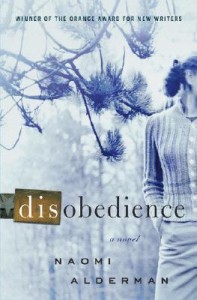 Naomi Alderman – ‘Disobedience’ (2006)
Naomi Alderman – ‘Disobedience’ (2006)
In Naomi Alderman’s first novel she writes about the area in which she was raised, the Orthodox Jewish community of Hendon in North London. Her book is a searing indictment of the damage done to one woman by her especially strict and repressive family.
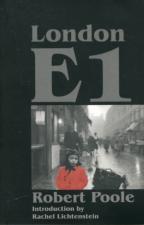 Robert Poole – ‘London E1’ (1961)
Robert Poole – ‘London E1’ (1961)
London E1 is the late Robert Poole’s only published novel. It is the tale of a young man, Jimmy Wilson, who lives in Brick Lane and gets by in life using his wits. But more interesting than the central story, is the insight Poole gives us into a post-war East End in flux as a result of ethnic and political change.
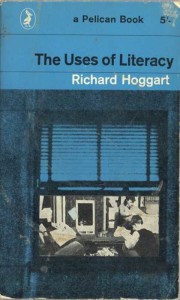 Richard Hoggart – ‘The Uses of Literacy’ (1957)
Richard Hoggart – ‘The Uses of Literacy’ (1957)
Hoggart’s death last month brought me back to this classic text from 1957. By turns autobiography, sociological research and political polemic, The Uses of Literacy charts the erosion of authentic working class culture by a market-orientated mass culture.
Meanwhile, we were listening to:
Austrian guitarist and composer Christian Fennesz’s work is heavily influence by the likes of Robert Fripp, Brian Eno and Berlin-period Bowie. This first solo album in six years is a feast of textured guitar treatments and hidden melodies.
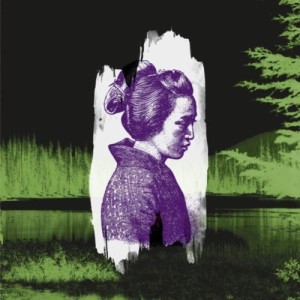 Forest Swords – ‘Dagger Paths’ (2010)
Forest Swords – ‘Dagger Paths’ (2010)
Matthew Barnes is Forest Swords and this is his debut EP. Like his later LP, Engravings, this first recording features textures, grooves and soundscapes redolent of the dunes, marshes and woodlands of his native Wirral.
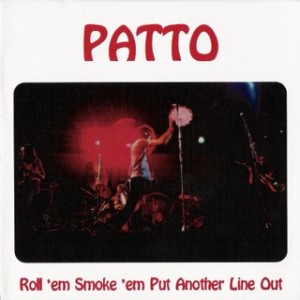 Patto – ‘Roll ‘em Smoke ‘em Put Another Line Out’ (1972)
Patto – ‘Roll ‘em Smoke ‘em Put Another Line Out’ (1972)
‘Whatever you do, don’t make it sound like Sergio Mendes’ (Loud Green Song). A lost classic from a band who never quite received the recognition they deserved. A heady mix of funk, blues, power chords and earthy humour
and watching:
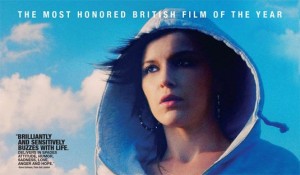 ‘Fish Tank’ – Andrea Arnold (2009)
‘Fish Tank’ – Andrea Arnold (2009)
Written and directed by Andrea Arnold, Fish Tank is set on a bleak Essex council estate and presents life as seen through the eyes of 15-year old Mia. Without sentiment, Arnold succeeds in creating characters who, whilst essentially dysfunctional, are also fully-rounded human beings each with his or her own story and dreams.
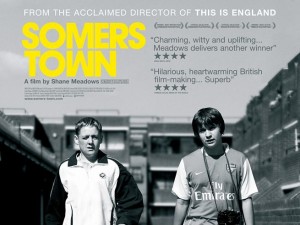 ‘Somers Town’ – Shane Meadows (2008)
‘Somers Town’ – Shane Meadows (2008)
Shane Meadows’s lyrical portrayal of a cross-cultural friendship between two lonely young men. Although much lighter than his previous films, Meadows creates a vivid portrait of an area on the cusp of being changed forever by the construction of the new St Pancras Eurostar terminal.
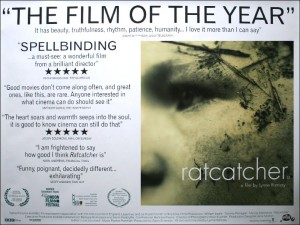 ‘Ratcatcher’ – Lynne Ramsay (1999)
‘Ratcatcher’ – Lynne Ramsay (1999)
Lynne Ramsay’s first feature film is set in Glasgow in 1973, a time of industrial decline and the removal of the poor from the centre of the city to its outskirts. Like many of Ramsay’s later films, Ratcatcher takes guilt, loneliness and loss as its themes, but tempers these with the life-affirming resilience of children.

